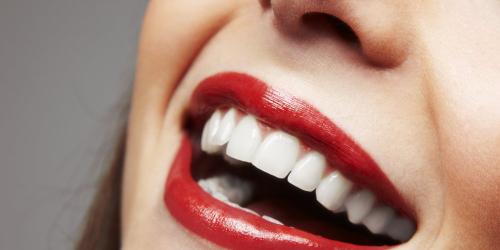I have jaw cracking
Why ? One opens and closes the mouth about 4500 times a day. If the upper teeth are attached to the skull, the lower part moves with two joints (temporomandibular right and left). One tooth less or a poorly adapted seal can create an imbalance between the pressures exerted on each side and cause a "clack" when you open your mouth or yawning. It is called a sadam (algo-dysfunctional syndrome of the manducatory system) and it can be accompanied by joint pain. What to do ? We go to the dentist without a hitch. Not only jaw disorders have consequences on the dentition (premature wear of teeth, risk of periodontitis ..), but they also impact the whole body (back pain, headaches, ...). To solve the problem, the specialist can add implants or a bridge if necessary, enhance a filling, or make a silicone gutter that rebalances the jaws. The situation improves significantly after 3 to 4 months. Otherwise, sessions with the osteopath can help to limit tension in the mouth.
My belly is gargoyle
Why ? Our digestive system is home to liquid and gas. If these are subjected to intestinal movements, it makes noise. A bit like shaking a bottle of sparkling water. The intestines contract under the effect of stress or hormones produced before meals to whet the appetite. That's why our canister makes noise when it's hungry. The amount of gas, and therefore the noise, increase in case of constipation or functional colopathy. What to do ? To limit unwanted sounds, we limit everything that promotes the presence of gas in the intestines: sodas, aspartame, chewing gum, as well as fermentable foods like cabbage ... We eat slowly not to swallow too large amounts of 'air. We also learn to manage stress through yoga for example, but also to hypnosis. Several studies have shown that this gentle therapy improves the quality of life of people who suffer from an irritable colon *.
* JNM, 2014
I cringe
Why ? Without realizing it, the stress pushes us to tighten the jaws and to rub the teeth of the top on those of the bottom . Sometimes it is the person who shares our bed who realizes it because the screeches wake her up at night. In the beginning, we suffer from muscular pains in the face, possibly headaches, then our teeth become sensitive and the enamel wears out little by little. In the long term, we risk loosening. What to do ? We do nothing if it is occasional, during peak stress. On the other hand, when it becomes chronic (several days or nights per month), the dentist will suggest the wearing, at night, of a made-to-measure silicone gutter (cost about 300 euros). As the teeth do not come into contact, usually the bad habit disappears after a month or two .
I have the hiccups
Why ? The diaphragm is a muscle behind the lungs that moves up and down to allow breathing. But certain behaviors (eating too much, too fast, smoking a lot, ...) irritate the phrenic nerve responsible for orchestrating the movements of the diaphragm. And here is the problem: the muscle contracts repeatedly and involuntarily, in opposition to breathing. What to do ? I apply Grandma's recipes by blocking the breath to immobilize the diaphragm and regain the right rhythm. If the hiccups are benign in 99.9% of cases, we consult if it lasts more than 48 hours (even with small breaks) or if it returns very regularly. It can be a warning signal for several pathologies such as inflammation, a neurological disorder or a tumor.
My ears are buzzing
Why ? Tinnitus can have many causes. Some people perceive rattling or piping noise related to the passage of blood through the carotid artery. These are measurable tinnitus, in contrast to subjective tinnitus (the most common) that nobody hears except the patient. They are due to age, sound trauma (concert, work, ...) or no known reason and in 95% of cases, there is also a drop in hearing. What to do ? If tinnitus is rarely serious (except when it is localized on one side only, with headaches or vertigo), it is often very troublesome. Direction the ENT to limit the damage. If you do it quickly, some medications are effective within three weeks after the onset of symptoms. Otherwise, hearing aids can better capture high-pitched sounds while generating frequencies that mask unwanted noise. Cognitive and behavioral therapy can also help manage anxiety and tinnitus-related quality of life.
Thank you to Dr. Philippe Godeberge, gastroenterologist and author of what you have in the belly (Ed.Gachette), Dr. David Gutman, dentist and Dr. Bertrand Geoffray, ENT.




